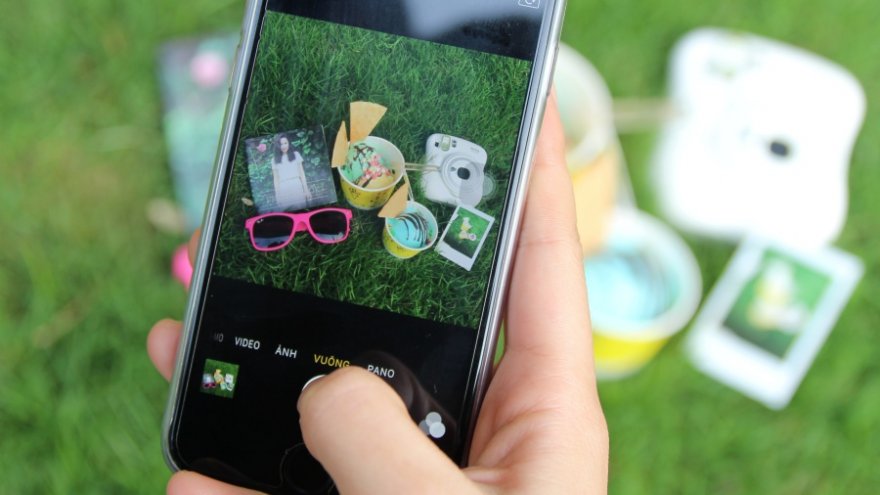At what Age should Kids get a Smartphone?

In the age of technology, when everyone around us is connected to technology in a form or another or keeps in touch with others worldwide through various forms of online communication, it’s often easy to forget that we aren’t even supposed to be holding our phone in our hand 24/7. What we also tend to forget is that the internet is a big place, a vast territory that can harbor so many things, places and people at the same time, all very much accessible at the tip of one’s finger.
While us, as adults, have grown accustomed to how the internet works, how we should behave online and how to recognize the real from the fake, children don’t possess those abilities right off the bat, especially when everything on the screen looks colorful and pretty and legit.
However, they pick up on the uses of technology much faster once they get their hands on a device, but they remain as naive and impressionable as ever. While they may quickly learn the ropes of using the given devices, like a phone for example, much quicker than an adult, they take a long while until they become mature and responsible enough to learn what they should or should not say online and what they’re allowed to do or not.
The biggest question a parent asks when it comes to children and technology is when to start trusting a child with their own phone, primarily. The main concern used to be about the possibility of the child accidentally dialing numbers and boosting the phone bill, but as phones became smarter and smarter with each new model that came out on the market, these concerns that stress out the parents have shifted as well.
Nowadays, every phone seems to be a smartphone, and every smartphone comes with so many new features that can be troublesome if the child doesn’t understand how to use them, or doesn’t listen to the parent’s instructions regarding their use. Take the internet for example; every smartphone now comes with browser applications, shops for downloading other apps for free or for a specific cost, and not to mention that many applications require payments for various features within them. If a smartphone is given to a child who is too young to have a proper grasp on the understanding of how money works and what online payments entail, then it can prove to be an issue for the parents. Not knowing any better, a child could easily pay a pretty sum just for some in-game bonuses or games themselves, if not properly educated about the issue beforehand.
 Another thing that comes alongside a smartphone is the ability to get in touch with pretty much anyone around the world, who also owns a smartphone, and trusting an impressionable child with such “power” can, again, become an issue. There’s nothing wrong with them chatting with other children on online games about the game itself or playing pretend there with avatars and animals and so on, but they do tend to take for granted everyone they talk to and everything they’re told, which can easily become problematic if a parent doesn’t know about it or catch up on anything that might not be so beneficial for the child. Scams happen every time in games, regardless if they only affect in-game possessions or if they involve real money as well, and if the platform supports socializing on a more complex level, the child will almost always be tempted to post pictures of their life there, to talk to other children. Pictures of themselves, their pets, their toys, they will end up there if the child isn’t educated about the dangers of the internet beforehand, and rather than having to deal with bad experiences, it would be much better if the parent tried to prevent those from happening in the first place, either by not allowing the child to access games that involve interacting with a community, if they’re way too young, or by monitoring it enough to make sure they’re playing in a healthy environment while not acting like a helicopter parent at the same time.
Another thing that comes alongside a smartphone is the ability to get in touch with pretty much anyone around the world, who also owns a smartphone, and trusting an impressionable child with such “power” can, again, become an issue. There’s nothing wrong with them chatting with other children on online games about the game itself or playing pretend there with avatars and animals and so on, but they do tend to take for granted everyone they talk to and everything they’re told, which can easily become problematic if a parent doesn’t know about it or catch up on anything that might not be so beneficial for the child. Scams happen every time in games, regardless if they only affect in-game possessions or if they involve real money as well, and if the platform supports socializing on a more complex level, the child will almost always be tempted to post pictures of their life there, to talk to other children. Pictures of themselves, their pets, their toys, they will end up there if the child isn’t educated about the dangers of the internet beforehand, and rather than having to deal with bad experiences, it would be much better if the parent tried to prevent those from happening in the first place, either by not allowing the child to access games that involve interacting with a community, if they’re way too young, or by monitoring it enough to make sure they’re playing in a healthy environment while not acting like a helicopter parent at the same time.
Despite it all, the question remains the same. At what age should kids get a smartphone? Well, it depends on the child, really. As a parent, you will want to look out for these aspects and traits of your child when considering getting them a smartphone or not:
1) Sense of responsibility
Since every child is different and every child’s level of maturity differs, judging a child’s capacity to comprehend responsibility all based on their age won’t work for everyone. Seven years old could be more responsible and mature than thirteen years old, just as it can be the other way around, as it all depends on their upbringing, education, models they take after and their personality after all.
Giving a smartphone, or any device for that matter, to an irresponsible child would just ask for headaches. Smartphones are nothing cheap, to begin with, nor do repairs come free. If they cannot be trusted to take good care of a smartphone then they simply shouldn’t have one. They’re super easy to scratch or break if not handled reasonably and their batteries lose their durability and efficiently if the phone is forgotten overnight when charging, or used intensely. Not only that, but there’s always the possibility that the child’s friends will ask to see or play with your child’s phone, and you can never control how others handle your child’s possessions in your absence, but they can. Only if responsible enough to look out for the smartphone’s safety though.
 2) Trustworthiness
2) Trustworthiness
Trust should be a top priority when handing a child a smartphone, as we trust them enough to be responsible with it and we trust them to tell us if they get in any trouble because of it, or if they did something that became a problem, in order for us parents to be able to solve whatever issue arises. As detailed above, the people a child can come in contact with are the biggest source of possible issues, so if you trust your child to come to you and communicate if anyone is harassing them or anything else, then they could qualify for keeping a smartphone.
So given that age isn’t always a good indicator for how responsible or trustworthy a child should be, it’s all about learning if your child can handle the responsibility and everything that comes with having a smartphone. People tend to recommend that kids get phones later in life, around the time they enter high school supposedly, but as time goes by, the age children receive smartphones tends to get lower, maybe because of how much impact technology has on our lives. I can give my own sister as an example even, as she’s received her first smartphone at the age of 8, but isn’t particularly responsible, and that frequently creates issues, mostly with how she neglects her phone and can’t be reached when needed, due to its remaining drained of battery after she plays on it all day. On the other hand, I’ve received mine when I was 5 because I tended to have to be away from my parents a lot, but in retrospect it wasn’t a smartphone, there wasn’t much I could do to ruin the phone, nor could I come in contact with strangers on a poor Nokia, so the type of phone you plan on handing to your child can also matter a lot. You could try to teach them how to handle a phone by handing them one that’s not so fragile or just try to responsibilize them first by handing them an “old school” phone rather than a smartphone right off the bat, but in the end, you should hand your child a phone when you think it is needed in order to communicate with them, not when other people try to enforce it on you both.







